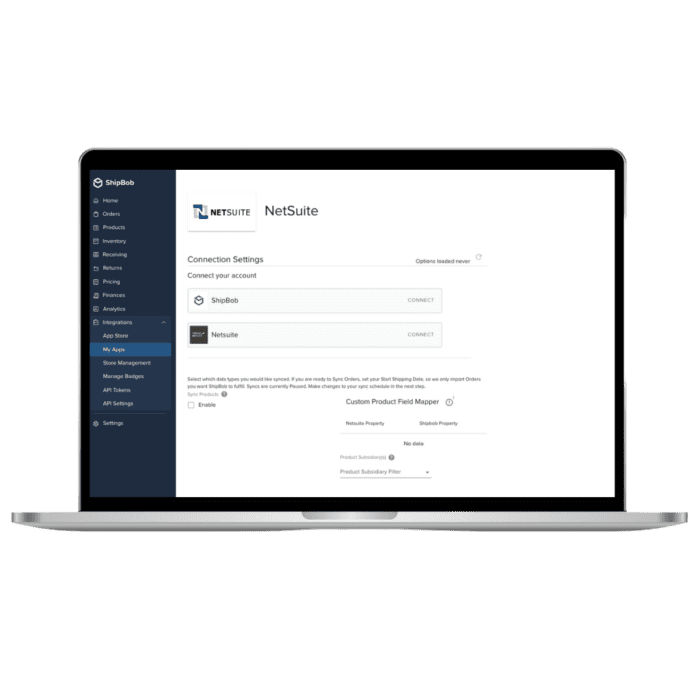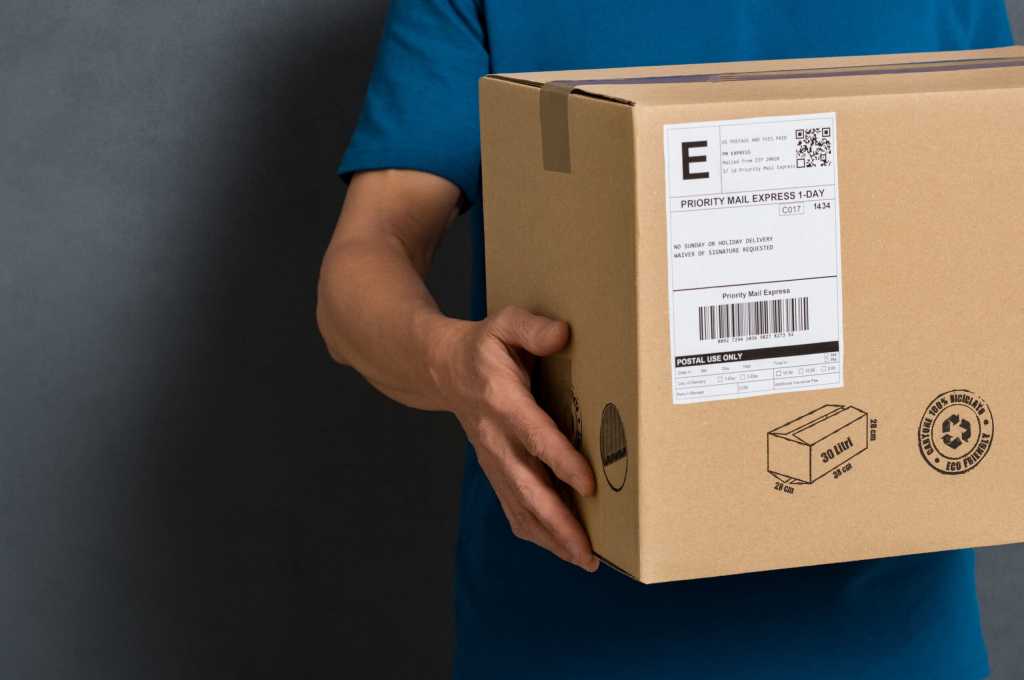Table of Contents
** Minutes
Understanding parcel management with ShipBob
Benefits of advanced parcel management systems
How to build a parcel management solution
Much more than parcel management: Introducing ShipBob’s fulfilment services
Imagine running an ecommerce business where every parcel seamlessly reaches the customer’s doorstep — no missed deliveries, no unexpected costs, no lost packages. Sounds like a dream, right? But for many growing businesses, the reality is far more chaotic. Late shipments, address errors, rising shipping costs, and courier delays can quickly turn a smooth operation into a logistical nightmare.
At ShipBob, we understand these challenges and aim to solve them. As a leader in ecommerce fulfilment, we combine cutting-edge technology with industry expertise to create a streamlined, hassle-free ecommerce parcel management experience.
In this article, we’ll dive deep into how you can master parcel tracking, optimise delivery routes, and avoid costly mistakes—while keeping your customers happy and margins strong.
Understanding parcel management with ShipBob
Effective parcel and delivery management is the backbone of a successful ecommerce operation. At ShipBob, we do our best to optimise this process through a combination of practices.
Parcel tracking
As the name suggests, parcel tracking is a system for monitoring the progress of a package as it moves from the sender to the recipient.
Parcel tracking at ShipBob begins when a unique tracking number is generated and uploaded to the order details page, linking to the courier’s website. This number allows customers to monitor the shipment’s progress from the fulfilment centre to their doorstep.

Address validation
Shipping orders to the wrong address or to an address with a typo can quickly get costly. Address validation means verifying and correcting addresses before shipping.
ShipBob’s system uses automated address verification tools to cross-check shipping addresses against postal databases.
We use an address auto-correct feature that reviews every address field on all orders to determine whether the address is valid — saving ecommerce store owners time and money.

Delivery optimisation
Delivery route planning is essential for reducing transit times, cutting shipping costs, and optimising the overall parcel management process.
ShipBob partners with both national and regional parcel couriers who use advanced route optimisation algorithms that analyse multiple factors such as:
- Traffic patterns
- Weather conditions
- Delivery windows
- Vehicle capacity
Integration with logistics systems (ERP, WMS, etc.)
Logistics systems like an enterprise resource planner (ERP) and warehouse management system (WMS) are the brains behind the operation that tie the whole parcel management process together.
At ShipBob, we allow you to integrate with an existing ERP to automate inventory updates and order processing.
However, ShipBob’s WMS takes parcel management a step further by offering a robust, user-friendly solution designed to optimise every aspect of your supply chain and fulfilment process. With ShipBob’s WMS, you can streamline warehouse operations, track inventory in real-time, and manage orders from multiple sales channels.

Benefits of advanced parcel management systems
At scale, proper parcel management is essential. Everything from inventory control to delivery speed can impact customer satisfaction and operational costs. Advanced parcel management systems offer several key benefits.
Courier handling efficiency
Managing multiple couriers manually can become a logistical maze. Not to mention a major drain on resources and time. Having a system that auto-selects the best courier based on pre-set criteria (factors like cost and parcel delivery speed) can significantly streamline the process.
This not only saves time but also ensures that you are always getting the best possible deal.
Enhanced customer service
Customer satisfaction is always the end goal of proper order management. The shipping and handling process undoubtedly needs to be top-notch, but for a stellar customer experience, it’s important to go above and beyond.
This includes providing real-time tracking updates, automated notifications, accurate delivery estimates, and more. This is where parcel management systems shine. At the end of the day, it’s all about reducing customer anxiety and increasing trust.
Automated rate shopping
Shipping costs can significantly impact your bottom line. That’s why ShipBob’s system makes it possible to compare rates from various couriers.
This way, you get the most cost-effective option for each shipment from couriers like UPS vs. USPS vs. Fedex.
Parcel consolidation
Efficient parcel consolidation can lead to substantial cost savings and improved delivery performance. ShipBob’s system groups multiple orders at regional parcel couriers, destined for the same location into a single shipment.
Not only does this cut shipping costs but it minimises the environmental impact because fewer trips are required.
How to build a parcel management solution
Building a robust parcel management solution involves a combination of planning, data collection, and integration with a provider that offers parcel management software.
Create a data-driven plan
The first step in building a parcel management solution is to create a data-driven plan. You need to analyse your current shipping data. The goal is to identify bottlenecks and areas for improvement.
Understand your parcel volumes, peak periods, and common delivery destinations.
Using this data, you can develop a strategy tailored to your specific needs. At ShipBob, we like to offer advanced analytics tools to provide deep insights into your shipping operations.
Establish KPIs & measurement processes
Once you have a plan in place, establish key performance indicators (KPIs) and measurement processes to track your progress.
Ecommerce KPIs are metrics such as delivery times, customer satisfaction, and inventory turnover rates. You need to have clear goals in mind to ensure that your parcel management solution is delivering measurable value.
Integrate with a fulfilment provider
This is where ShipBob steps in. Fulfilment solutions like ShipBob exist to handle various aspects of your logistics operations, from warehousing and inventory management to order fulfilment and shipping.
Through partnering with ShipBob, you can leverage our extensive, global fulfilment network and operational expertise. You can offload complex logistics tasks and gain access to resources that may otherwise be out of financial reach.
By creating a plan, setting KPIs, and tying everything together with a fulfilment partner, you can focus more on growing your business while ensuring operational efficiency.
Much more than parcel management: Introducing ShipBob’s fulfilment services
If you want your parcel management to reach the next level, ShipBob offers a comprehensive suite of fulfilment services designed to do just that.
Seamless integration with ecommerce platforms
We understand how widespread major ecommerce platforms are. That’s why we offer our customers the ability to integrate with their existing Shopify, WooCommerce, BigCommerce, or other store platforms. Moreover, ShipBob can connect to tax platforms and customer service software, or you can leverage the developer API to create custom integrations tailored to your unique business needs.
Real-time inventory and order tracking
ShipBob’s fulfilment technology offers powerful real-time inventory and order tracking features that keep you in control of your operations. With our advanced system, you can monitor your stock levels across all fulfilment centres in real-time, ensuring that you never run out of inventory or overstock.
Optimised shipping costs & efficient returns management
Shipping costs can quickly erode your profit margins. ShipBob can help you manage these expenses effectively.
You need to know how to stay profitable in these situations by improving customer support and partnering with a reliable fulfilment provider like ShipBob that can handle returns efficiently.
Get started with ShipBob
Interested in learning more about how ShipBob can help your brand with parcel management (and the rest of your fulfilment and logistics)? Connect with our team to get a customised quote.
Parcel management FAQs
Here are answers to commonly asked questions about parcel management.
What is parcel management?
Parcel management is overseeing and optimising the delivery process. It covers a host of factors from order placement to final delivery. Parcel management includes selecting couriers, tracking parcel shipments, managing returns, and optimising delivery routes.
What technologies does ShipBob use to enhance parcel management efficiency?
ShipBob uses automated courier selection, real-time tracking, data analytics, inventory management systems, and ecommerce platform integrations. These technologies provide up-to-the-minute updates and optimise the routes for shippers.
How do you implement an effective parcel management system in a warehouse?
To implement an effective parcel management system, create a data-driven plan, establish KPIs, and choose the right technologies and partners. This typically involves partnering with a fulfilment provider.
How does ShipBob reduce shipping costs for ecommerce businesses?
From large orders to small parcel shipping, ShipBob cuts shipping costs through automated rate shopping, courier partnerships, parcel consolidation, and optimised shipping routes. Specific actions include comparing rates, contract negotiations, consolidating shipments, and choosing the most efficient delivery paths.





